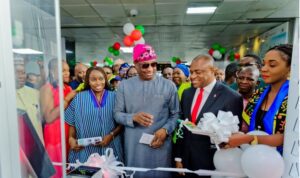Naira plunges to record low of N960, as Dollar demand surges at black market
By Sodiq Adelakun
In a concerning development for Nigeria’s economy, the naira, the country’s currency, weakened to an all-time low of N960 against the dollar on Monday.
This represents a 0.52 per cent loss compared to the N955 per dollar traded on Friday. The depreciation comes despite the recent appointment of Olayemi Michael Cardoso as the new Governor of the Central Bank of Nigeria (CBN) by President Bola Tinubu.
The parallel market, commonly known as the black market, experienced strong demand for dollars, leading to the decline in the value of the naira.
This situation highlights the challenges faced by the new CBN Governor in stabilising the currency and restoring confidence in the Nigerian economy.
While the naira struggled at the parallel market, there was a different trend at the Investors’ and Exporters’ (I&E) forex window, Nigeria’s official foreign exchange market.
Here, the naira strengthened by 2.96 per cent, with the dollar quoted at N756.91 on Friday. This was a slight improvement compared to N780.00 on Thursday, but weaker than N758.12 on Wednesday and N742.10/$1 mentioned on Tuesday, according to data from the FMDQ.
The decline in the dairy foreign exchange (FX) market turnover further adds to the concerns. On Friday, the turnover decreased by 34.21 per cent to $45.88 million from $69.74 million recorded on Thursday. This decline reflects the cautious approach of investors and businesses in the face of the unstable currency situation.
As the new CBN Governor takes charge, stabilising the exchange rate, controlling inflation, and maintaining single-digit interest rates are expected to be his topmost priorities.




